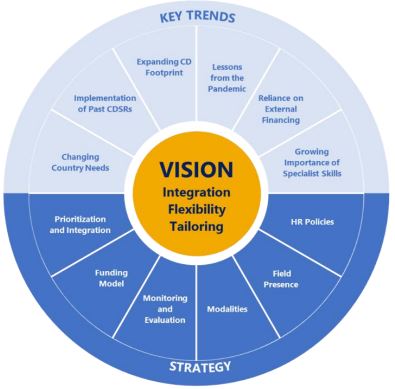2024 Review of the IMF’s Capacity Development Strategy
Every five years, the IMF undertakes a comprehensive review of its capacity development (CD) strategy. As a core function of the Fund, CD accounts for around one-third of our direct work with member countries and supports them to develop human capacity and build institutions for sound macroeconomic policies. Regular reviews of our CD strategy are vital to ensure that the Fund’s CD continues to be of high quality and well-focused on the priority needs of member countries. The past two CD strategy reviews in 2013 and 2018 led to a series of reforms to increase the efficiency and impact of CD, while strengthening its internal governance.
The 2024 review builds upon these reforms to advance the evolution of the Fund’s CD. It calls for CD to become more flexible, better integrated with the Fund’s economic analysis and lending activities, and well-tailored to respond to member needs. This review benefitted from the recent independent evaluation of IMF CD and a wide range of inputs, including internal and external consultations with stakeholders, surveys of recipients and development partners, staff background studies, and recommendations of an External Advisory Group.
Learn More About the 2024 Review of the IMF’s CD Strategy
- 2024 Review of the Fund’s Capacity Development Strategy—Overview Paper
- 2024 Review of The Fund’s Capacity Development Strategy—Background Papers
- 2024 Press Release: IMF Executive Board Concludes the Review of the Fund’s Capacity Development Strategy
- 2024 Review of the Fund’s Capacity Development Strategy: Brochure








